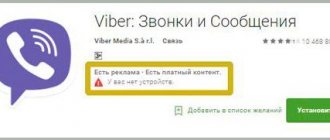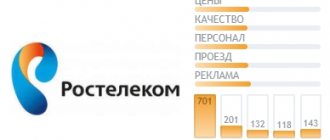You won’t surprise anyone anymore with having a telephone; people want to be online 24 hours a day, at any time and everywhere. The most amazing thing is that people go further, they want to be online even when their phone is turned off or the network is unavailable. It is for this reason that there is I'm in touch with MTS service. Now the client is truly always online. Even if the ability to receive calls has disappeared, then when the connection is restored, the caller will immediately receive an SMS message with information that the person you called is available to call again.
How does the service work?
The service works in two ways, that is, it informs you about the appearance of subscribers on the network and informs subscribers about your appearance on the network. In turn, the user to whose number you made an outgoing call will receive an information message about missed incoming calls as part of the “You got a call!” option.
The service has the following restrictions:
- Users receive notifications that a subscriber is online only if your call to them was made no more than a day ago. Otherwise, you receive an information message in the format “Subscriber timeout has expired.”
- It will not notify you about the appearance of a user on the network if he has “Ban from MTS” enabled.
- It will only work with a limited list of regions, which can be clarified for your number at: https://www.mts.ru/mob_connect/services/direction_calls /subscriber/online/.
- Works only with Mobile TeleSystem user numbers.
The option interacts directly with . By using the “You've been called!” notification option, you allow that a user with the “I'm in touch” option enabled can always determine the timing and appearance of your number on the network. The paid connected service “Banning the MTS “I’m in touch” service” allows you to refuse this information.
The room does not transmit the signal
The problem can also arise in a large city, where it would seem that towers are located on every corner. It's all because of the buildings that shield the signal. Reception deteriorates significantly when the subscriber goes down into the basement. Some houses built over 50 years ago also have thick walls, which can cause poor or no reception even on the upper floors.
Another type of building that is good at preventing the operation of cellular networks is metal boxes and hangars. Some hypermarkets, garage complexes and similar premises are built using this principle. As a result, internal reception may either be completely lost or the quality may be significantly reduced. One can only come to terms with this, because the only solution to the problem is to leave this building.
What is the price?
The activation of this service itself is free. Tariff plans Super MTS, Red Energy and Guest include the service in the main package and on these plans it will not cost you anything. Users of other tariffs will pay 30 kopecks daily for the service. You can disable it for free. But disabling the service will only result in the fact that information messages within the service will no longer be sent to your mobile number.
In order for the network to stop reporting your appearance to other subscribers, you will have to enable a ban. This is a paid option - it costs 25 rubles per month and is charged daily in equal installments. Its connection and disconnection itself is free.
MTS crashes today
One of the reasons for incorrect operation of mobile communications is a malfunction of the operator’s equipment. Sometimes some towers fail, or an entire region may fail at once. This is due to unforeseen accidents that can be caused by massive equipment failure, as well as adverse weather conditions and other problems. In rare cases, failures occur due to the fault of attackers who damage base stations for hooligan reasons or for profit. In the event of an emergency, reception may be maintained, but calls will not be made. To figure out whose side the problem is, just call the operator and find out whether the network is working normally in the required region.
How is the option enabled and disabled?
How to connect and how to disconnect from MTS? The service does not require a special connection - the operator did it for you. But you can make it inactive in the following ways:
- After logging into your account on the operator’s website at: https://login.mts.ru, in the “Service Management” section, select “Connect new ones in the list of services.” Make the service active. on the contrary, turn it off.
- Do the same using the My MTS mobile application. In the “ section, find the necessary items and activate them, and disable them.
- Call technical support at 0890 or personally visit the operator’s office.
- Dial USSD commands:
- *111*211420# – to disable incoming notifications about other subscribers appearing on the network, disable “I’m online”.
- *111*334# – turn off notifications about your appearance on the network to other users by enabling “Ban.
- Send SMS commands to number 111:
- 211420 – to disable incoming notifications about other subscribers appearing on the network, disable “I’m online”.
- 21143 - turn off notifications about your appearance on the network to other users by enabling “Ban.
If you want to leave notifications about your appearance on the network connected without paying the operator additionally for “Ban”, then disabling it is done like this:
- The USSD command *111*334# will allow you to disable the “Ban.
- SMS command to number 111 combination 211430.
- In one of the Personal Account options - web or mobile application.
- Call technical support at 0890 or personally visit the operator’s office.
Attention! Option “I’m in touch!” connected before April 2013, you can turn off USSD using the combination *111*272#.
What to do if there is a bad connection
First, you should make sure that the problem is not on the subscriber's side. Will be good. If you have another phone at hand, preferably with a SIM card from another operator. With its help, you can check the serviceability of your own card and smartphone. To do this, it will be enough to swap the SIM cards and see where the problem persists.
If you manage to find out that the problem is on the operator’s side, you can check whether there are any scheduled works using the official website. If there is no information there, all that remains is to contact the MTS support service in any available way, be it a chat, a call or filling out a form on the website and wait for an answer about the time frame for solving the problem.
Where to call if there are problems with communication In order to inform the operator about problems with communication, you can use the official technical support numbers. Often you will have to make a call from a smartphone that has a SIM card from another company installed, so you need general, not short numbers:
- MTS support 88002500890;
- MTS support in roaming +74957660166;
In the case of roaming calls, you will have to plan in advance for expenses associated with international communications. Therefore, the best option would be to prepare your phone for the trip while still in Russia. If you wish, you can also call the support service for advice. Operators will help you not only set up your smartphone, but also find advantageous offers for communication abroad.
When are advertising calls legal and when are they illegal?
The first question that each of us asks the caller: “Where did you get my number (name and (or) other personal information)?” Callers usually don’t give a clear answer to this question, so (as usual) we’ll try to figure it out on our own.
Advertising calls to your phone (like SMS) are legal only if you have given your consent to receive such advertising, which is expressly provided for in Article 18 of the Law “On Advertising” and Article 15 of Law No. 152-FZ “On Personal Data”.
Most often, advertising distributors receive such consent when filling out a questionnaire for issuing various discount cards, bonus or club cards, as well as on various websites.
If the clause about your consent to receive advertising mailings is printed in small print, then such consent is not considered legal.
The advertising distributor is obliged to immediately stop distributing advertising to the person who contacted him with such a demand.
If you did not consent to receive advertising calls or refused to receive them and did not consent to the processing of your personal data, then such calls are twice illegal, because violate the requirements:
- Article 18 of the Law “On Advertising” (compliance with which is monitored by the FAS)
- Article 15 of Law No. 152-FZ “On Personal Data” (compliance with which is monitored by Roskomnadzor).
Despite this, neither the FAS nor Roskomnadzor is in a hurry to fight illegal advertising, leaving us alone with this problem.
You can combat advertising calls in the following ways:
Ways to combat advertising by phone
The methods of combating advertising by phone are the same as those of SMS spam, with the only difference being:
- It is useless to contact your telecom operator;
- in this case, you need to file a complaint not with the FAS, but with Roskomnadzor, because according to Article 23 of Law No. 152-FZ “On Personal Data”, it is he who exercises control and supervision over compliance with this law;
- There are programs for smartphones to automatically block incoming calls (for example, I like the “Don’t pick up the phone” program).
In this case, it is necessary to take into account some features:
- Unlike SMS spam, when calling you communicate with a real person - an advertising distributor;
- usually advertising calls are unexpected, so as a result of an advertising call we only have the phone number from which they called.
Therefore, we will not repeat the previously described methods of combating SMS spam, but will supplement these methods with an approximate list of questions that should be asked to the advertising distributor, taking into account the fact that callers violate not only the Law “On Advertising”, but also the requirements of Law No. 152-FZ “On personal data” (for which Article 13.11 of the Code of Administrative Offenses provides for administrative liability). To do this we ask:
- where did he get your phone number;
- which organization provided information about you;
- does the caller have documents with your signature confirming your consent to receive advertising to this number;
- name, legal address, INN, OGRN of the organization in which the caller works, his last name, first name, patronymic and position.
The following should be noted here: in order to avoid the title of personal data operator (thus avoiding all the difficulties associated with fulfilling the requirements of Law No. 152-FZ), advertising customers often delegate the functions of calling potential clients to third parties (although the callers introduce themselves as employees the organization whose services they are advertising. So the author repeatedly received calls from the phone 383-14-81 and the callers introduced themselves as the quality service of the Internet provider Skynet, starting the conversation with the fact that in my house the Skynet company provides Internet access services and calling at This is both my house number and my other personal data. Having contacted the provider directly, company representatives explained that they (allegedly) did not know who called, and the specified phone number did not belong to the provider). In this regard, it would be a good idea to ask for information about the advertising customer and the basis for the provision of calling services (date and contract number).
Here's what we demand:
- stop distributing advertising to this number in connection with this (even if your personal data was obtained legally - this is expressly provided for in Article 9 of Law No. 152-FZ “On Personal Data”);
- delete all your personal data from all caller databases (Article 20 of Law No. 152-FZ “On Personal Data”);
- send you written confirmation that all your personal data has been deleted from all databases of the advertising distributor (Article 21 of Law No. 152-FZ “On Personal Data”).
The questions presented will help you draw up a substantive complaint to Roskomnadzor and will increase the achievement of the desired result of its consideration.
Causes
The subscriber may not immediately understand that his phone numbers are affected by any restrictions, especially when the service is automatically activated. For example, after crossing the country's border it turns out that incoming calls are not accepted. But even if you independently choose restrictive measures, you need to know about ways to solve the problem.
Why does it happen:
- Accidental connection by subscriber.
- Automatically connects with other conditions.
- Activated when there is insufficient funds in the account for incoming calls abroad.
Some operators charge a subscription fee for this type of communication regulation, so it is important to know how to disable the ban without buying a new SIM card











